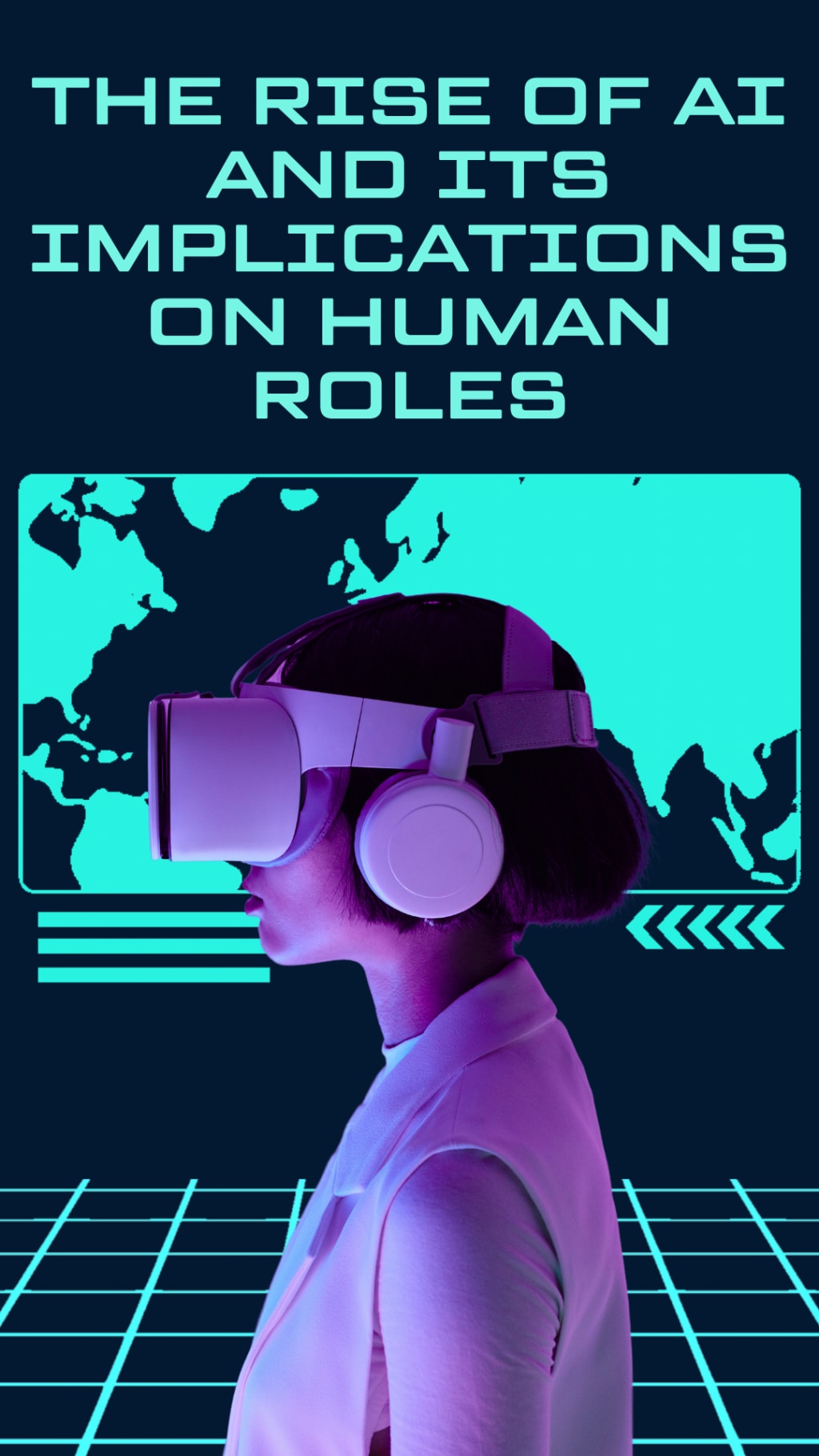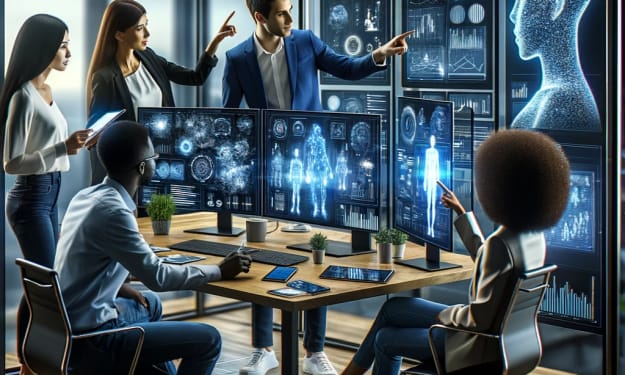The Rise of AI and its implications on human Roles
AI and Human

In the ever-evolving landscape of technology, the question of whether artificial intelligence (AI) can eventually replace humans remains a subject of profound contemplation. While popular virtual assistants like Ceri, Alexa, Cortana, and Google Assistant have become household names, the realm of artificial intelligence extends far beyond these voice-activated helpers. AI encompasses a vast array of applications that are fundamentally altering the dynamics of human-machine interaction and reshaping the very fabric of modern society.
At its core, AI seeks to emulate human cognitive processes using machinery, most prominently computer systems. Its presence is pervasive, with businesses across various industries incorporating AI in varying capacities, ranging from elementary applications to intricate systems of advanced sophistication. AI's taxonomy is commonly categorized into two primary strains: weak AI and strong AI.
Weak AI pertains to systems tailored for specific tasks, such as voice assistants that can answer queries or execute pre-programmed commands. Yet, these functionalities are contingent upon human input and interaction. In stark contrast, strong AI exhibits cognitive capacities akin to human thought processes. These systems possess the ability to independently tackle problems and make decisions without requiring perpetual human intervention. A classic exemplar of strong AI is the self-driving car, employing an amalgamation of computer vision, image recognition, and deep learning algorithms to navigate lanes and adeptly evade obstacles, including pedestrians.
The transformative potential of AI reverberates across numerous sectors, permeating industries like healthcare, education, finance, law, and manufacturing. Its integration benefits both corporations and consumers alike. Technologies enriched with AI encompass a diverse spectrum, spanning automation, machine learning, machine vision, natural language processing, and robotics. For instance, the healthcare landscape is revolutionized by AI's assistance in diagnosing medical conditions and offering treatment recommendations that elevate patient outcomes. In finance, AI algorithms meticulously scrutinize extensive datasets to forecast market trends, thereby guiding investment decisions with unprecedented precision. The legal domain leverages AI's prowess in sifting through copious legal documents and case histories to efficiently extract pertinent information.
However, the assimilation of AI into our lives introduces multifaceted intricacies concerning legality, ethics, and security. Consider the scenario of an autonomous vehicle being involved in an accident - questions regarding liability and responsibility swiftly become entwined. Moreover, the misuse of AI by malicious hackers utilizing machine learning tools to breach sensitive systems poses substantial security challenges. Despite these concerns, comprehensive regulations governing AI's use remain scant. Experts assert that while AI augments products and services, it is improbable that humans will be entirely supplanted by machines in the foreseeable future.
In conclusion, the pervasive influence of AI is inarguable, infiltrating an array of societal sectors. Nevertheless, the intricate ethical, legal, and security considerations stemming from its integration underscore the necessity of robust regulatory frameworks. While AI's potential for transformative impact is immense, its complete replacement of human roles seems implausible. The symbiotic relationship between human ingenuity and AI innovation is poised to shape forthcoming chapters of technological evolution.
Amidst the profound interplay between AI and human capabilities, a tantalizing glimpse into the future materializes - one in which collaborative endeavors engender unprecedented advancements. Humanity stands at the threshold of an era where machines serve to amplify human potential, rather than supplant it. Balanced with prudent optimism, individuals and industries can harness AI's power to surmount challenges, nurture creativity, and accomplish feats that were previously deemed unattainable.
As the technological tapestry continues to unfurl, the harmonious fusion of human intellect and AI capabilities promises to craft a narrative richer and more intricate than ever before. The journey of AI intertwines indelibly with the human journey, each catalyzing the other's growth. AI's ascent is a testament to the remarkable capacity of human imagination, creativity, and aspiration. It underlines technology's potential to enhance human capabilities, pushing the frontiers of possibility.
As humanity strides into uncharted territories of technological progress, the equilibrium between AI and human endeavors serves as the compass guiding us toward a future brimming with boundless potential. The narrative woven by the combined threads of AI's emergence and human ingenuity unfolds with promise and intrigue, offering a vista where innovation knows no limits.





Comments
There are no comments for this story
Be the first to respond and start the conversation.